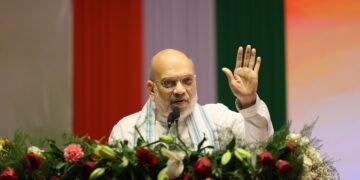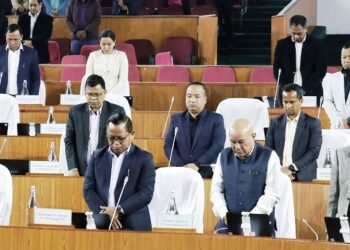A five-judge Constitution Bench of the Supreme Court headed by Chief Justice of India (CJI) D Y Chandrachud on October 17 refused to grant any legal sanction to same-sex marriage. The top court said that the law as it stands today does not recognise the right to marry or the right of same-sex couples to enter into civil unions, and that it is upto the Parliament to make laws enabling the same. The Constitution Bench was hearing a batch of petitions that challenged certain provisions of the Hindu Marriage Act, Foreign Marriage Act, Special Marriage Act and other marriage laws as unconstitutional on the ground that they deny same-sex couples the right to marry. The Supreme Court delivered four verdicts in the same-sex marriage case. Out of the five judges on the Constitution Bench, the majority verdicts delivered by three judges, Justice Ravindra Bhat, Justice Hima Kohli, and Justice P S Narasimha held that civil unions between same-sex couples are not recognised under law and they cannot claim the right to adopt children either.
The Constitution Bench, also comprising Justices S K Kaul, S R Bhat, Hima Kohli, and P S Narasimha, held that queer couples do not have an unqualified right to marriage. It asked the Union government to set up a high-powered committee to be chaired by the Cabinet Secretary to take steps to decide the rights and social entitlements of same-sex couples. In two separate minority judgments, CJI D Y Chandrachud and Justice Kaul ruled that same-sex couples are entitled to recognise their relationships as civil unions and can claim consequential benefits. Both the judges held that such couples have the right to adopt children and struck down Central Adoption Resource Authority (CARA) regulations to enable the same. However, Justice Bhat maintained that CARA regulations were in fact not void for not allowing queer couples to adopt. Justice Kohli concurred with Justice Bhat. Justice Narasimha agreed with Justice Bhat’s view and stated that CARA Regulations could not be held unconstitutional.
Can same-sex couples adopt after this judgment? No, since the Bench was divided and the majority judgment (3:2) held that couples cannot adopt under the prevalent law and upheld CARA, the status quo will prevail. The decision to deny the LGBTQ community the right to adopt children is heart-breaking for the community. Similarly, the Supreme Court’s refusal to legalise same-sex marriages and instead leave it to the Parliament to form legislation on this count, has left the LGBTQ rights activists disappointed. The positive part of the Supreme Court’s judgment is the court’s observations on ending administrative and social discriminations against same-sex partners. The observations by the apex court in protecting the dignity and basic rights of same-sex partners is extremely significant. Often, law enforcement agencies forcefully separate adult same-sex partners and send them to their parents, which is totally in violation of their basic rights.


























